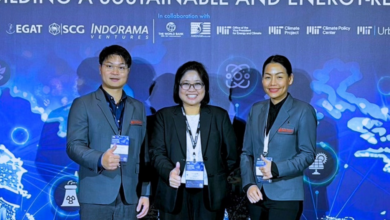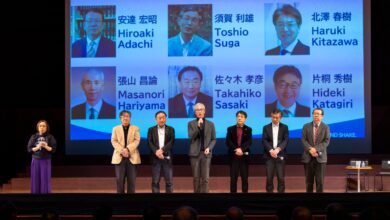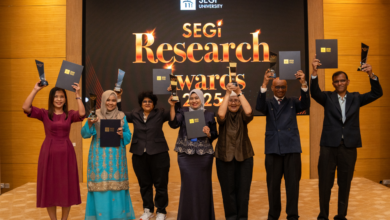Thammasat Developed an Automatic Turning Bed to Reduce Pressure Sores for Elderly and Bedridden Patients

Pressure sores are areas of damage to the skin and the underlying tissue caused by constant pressure or friction. This type of skin damage can develop quickly to anyone with reduced mobility, such as older people or those confined to a bed or chair. Relieve pressure through regular movement and position changes can help prevent and reduce the risk of pressure sores. However, turning an immobile patient by a single caregiver is quite a challenge. Turning a patient requires a heavy lifting, hence consequently creating some shoulder or back problem for the caregiver.
The Faculty of Nursing, Thammasat University recognizes the risk factors for pressure sores and the implications of a prolonged stay in bed, hence, undertakes the initiative to create a “bed turning” touch screen system equipped with the detection of skin condition and warning signs of infection for a proper treatment to be done to prevent skin damage and pressure sores.
The first key component of the bed is the mechanism to turn patients left and right, lifting the bedhead or bending the knees by using 4 linear actuators controlled via the touchscreen system of the mobile phone. The bed can support a weight up to 100 kilograms with structural strength calculations in accordance with all the prescribed standards and has been tested according to medical device standards IEC 60601-1 and IEC 60601-2.
The second component is “pressure sensing”, a skin condition warning system with the sensor installed in the mattress to detect and measure the level of pressure of the body onto the mattress. The caregiver can operate and control the turning functions, check the status of the pressure from the sensor, and access the data through an application on the mobile phone.
Bedridden can happen to the elderly or patients whose physical health is deteriorating and unable to control the bowel movement or urination. When the skin is exposed to urine and faeces, it is easier to be irritated and infected. The research team, therefore, further developed the sensor to detect the occurrence of dermatitis caused by the contact of urine and other body wastes. The sensor can measure the changes in skin pH and the moisture level, then, transmits the information through the same mobile application.
From this preliminary testing, it was found that the incidence rate of pressure sores among the sampled group of patients was lower than the group using the normal beds. The prevention of pressure sores, thus, economically reduce the cost of treatments and other implications of a prolonged stay in bed for the elderly and bedridden patients.
The automatic turning bed to prevent pressure sores (Petty Patent Application No. 2303000697) received the grand prize, PRIX EIFFEL 2022 Platinum Medal Award at The Prix Eiffel International Invention and Innovation Contest (PRIX EIFFEL 2022) in Paris, France, and a gold medal at the 25th International Idea Novelty Invention Exhibition and Fair (IDEA 2023) held in Hungary.
The prototype has been further developed and improved to commercially produce for hospitals and day care facilities.




